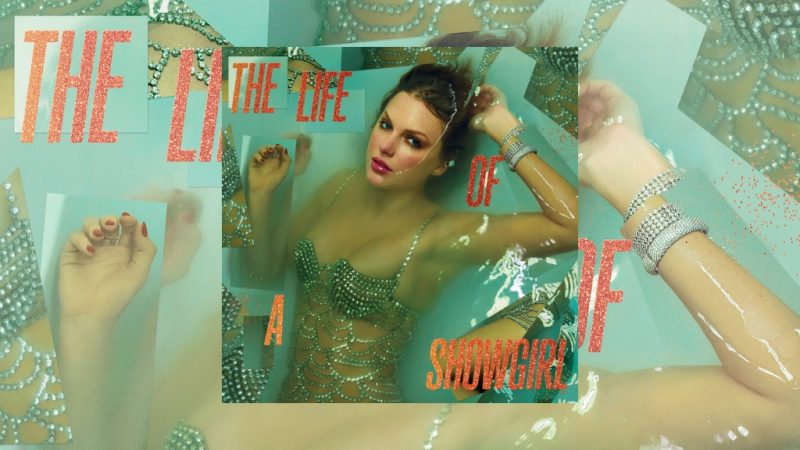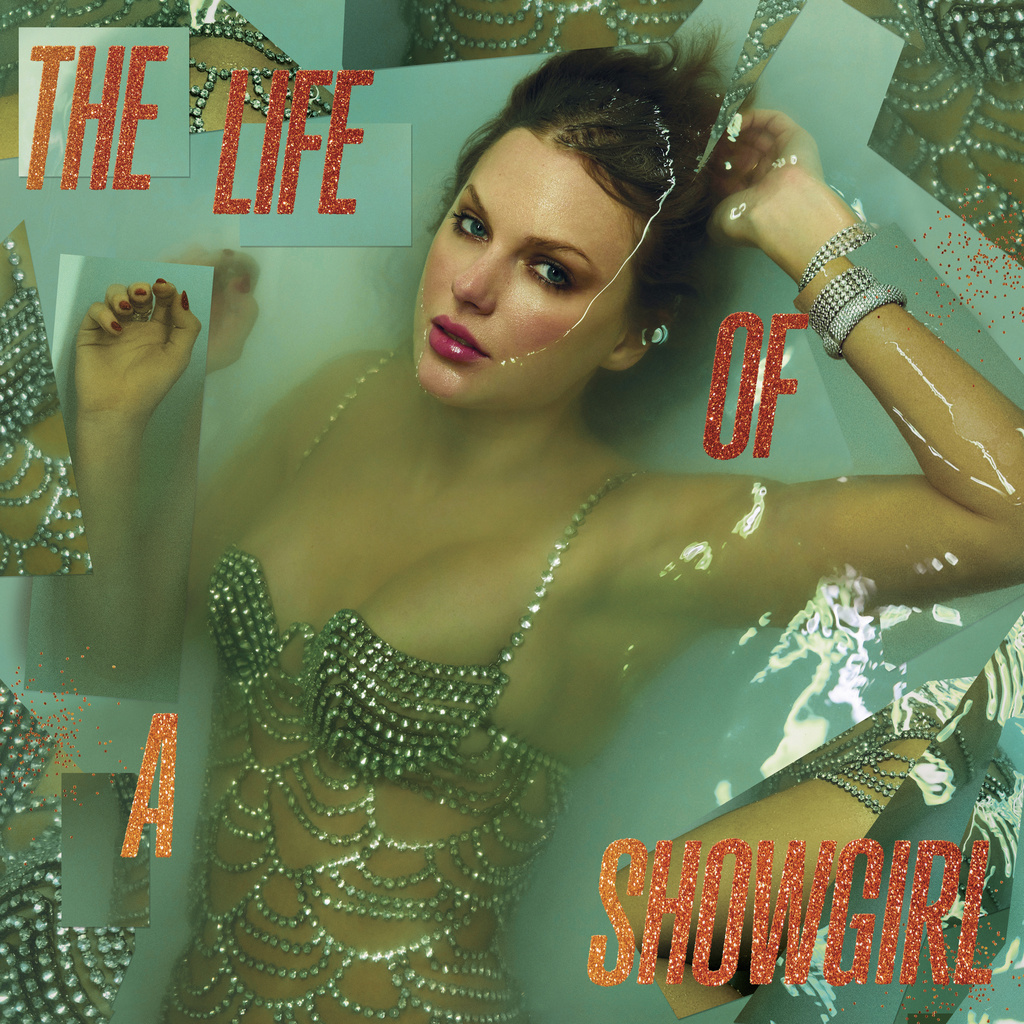
(KTLA) — As a day 1 fan of Taylor Swift, who purchased (and relentlessly listened to) her debut single “Tim McGraw” on iTunes on June 19, 2006 — months before her self-titled debut album released, it’s been a double-edged sword watching the country ingénue become a global pop megastar.
While the various accolades Swift’s reached over the past 20 years, and particularly over the past 5 years or so, are impressive, they’ve had an adverse effect on Swift’s artistry. Nowhere is this more apparent than her recently released 12th studio album, “The Life of a Showgirl,” her third and worst misfire in three years.
“Showgirl” has so much going for it: In addition to Swift, whom we know is capable of writing and producing a perfect pop song (“Delicate,” “We Are Never Ever Getting Back Together,” for instance), super hit makers Max Martin and Shellback were back, reunited with Swift for the first time since 2017’s “reputation.”
Ahead of the release, Swift touted the album’s “bangers,” while saying she intended to challenge herself as a songwriter in its creation. I didn’t have high expectations for the album, as her music has trended toward bloated, creatively dull and dare I say, lazy, since 2022’s scattered “Midnights” — but I was hopeful.
Instead, “Showgirl” finds Swift unfortunately taking the wrong lessons from the aforementioned Grammy Award-winning album, in addition to last year’s overwrought-yet-underbaked “The Tortured Poets Department.”

Album opener (and lead single), “The Fate of Ophelia,” sounds pleasant enough, with Swift singing about life-saving love atop a bouncy synth beat that’s oddly reminiscent, coincidentally, of work by the 1975, among dozens of other current pop artists. It’s a midtempo track that should set the tone for the album (and in many ways it does), but instead passes without making much of an impression.
As a lead single, “Ophelia” fails to capture the same interest as even 2022’s “Anti-Hero,” which while far from Swift’s best, at least had sticking power and some narrative intrigue. This track instead is more akin to last year’s underwhelming “Fortnight,” which managed to at least be sonically alluring, thanks to production which heavily leaned on a near-identical instrumental to The Blue Nile’s 1989 track “The Downtown Lights.”
But “Ophelia” is neither sonically interesting or lyrically sharp, as its sentiments and metaphors feel recycled from Swift’s own catalogue. It’s a whimper of an opening track and things go even further downhill from there.
“Opalite,” meanwhile, feels like a kernel of a better song. Coasting on a very “1989”-lite beat, the track ultimately goes nowhere, with the song feeling more like a demo that was mastered before the extra “oomph” to make it a hit single was added in.
Lyrically, the album is a trove of Swift’s worst songwriting instincts. The 35 year-old artist, who received critical acclaim for songwriting on albums like “folklore” and “evermore,” retreats into childish turns of phrase, awkward/nonsensical metaphors (“was the first lamb to the slaughter, so we all dressed up as wolves and we looked fire”), and the unnecessarily overcomplicated purple prose that she’s gone all-in with over the past few years.
“I have been afflicted by a terminal uniqueness,” Swift sings on “Eldest Daughter.” Sounding like a 14 year-old theater kid writing an “I Want” song, the lyric lands with a thud that’s painfully outdone by other, worse, tracks. On the thematically confused “Father Figure,” Swift swaggers around the track singing “I can make deals with the devil because my d–k’s bigger” — a lyric that sounds like it should be on the side of a Monster Energy can.
Elsewhere, Swift’s over-reliance on contemporary popular jargon (“Did you girl boss too close to the sun?” on “CANCELLED!”, for instance) gives her songs a cheap and oddly dated feeling. “I’m not a bad b—h and this isn’t savage,” she says on the aforementioned “Eldest Daughter,” lyrics which echo Rihanna’s song “Needed Me” from 2016, and feel culturally stuck there.
Songs like, “Wood,” meanwhile, feel like botched attempts at capturing the tongue-in-cheek sexuality of artists like Sabrina Carpenter and Ariana Grande. While raving about a lover’s “manhood,” Swift feels out of place and uncomfortable, and likewise, the listener feels this, too. It’s great for artists to embrace their sexuality but Swift fails to match the lyrical content to her own vocal performance, which sounds too childish for this particular topic. The song can’t end soon enough.
In the album announcement on fiancé Travis Kelce’s “New Heights” podcast, Swift said the album would explore her inner life during the time of her record-breaking “The Eras Tour,” but instead, the album feels divorced from honesty and real life stories.
For instance, a would-be tender concept of choosing love over money and fame, on “Wi$h Li$t,” is marred by inauthentic (or else unobservant) self-reflection. In said track, Swift laments the trappings of capitalism, which feels as if she doesn’t understand herself and her own well-displayed capitalist tendencies. It actually wouldn’t be hard to take time off and live a happy life with Kelce, but instead, she’s releasing a new album complaining about how tired she is.

The album’s true tonal miscalibration comes in the form of “Actually Romantic,” an alleged diss toward pop artist Charli XCX, whose 2024 song “Sympathy is a knife” allegedly alluded to Swift. But while that song focused on XCX’s own insecurities being around someone she considered “better” than her, Swift’s instead recharacterizes XCX’s song as haterism. Not only is this a complete misreading of “Sympathy,” but it’s a particularly humorless (and telling) response to a song that wasn’t, as far as we know, a knock at Swift.
This arrogant and smarmy attitude pervades much of the album, which oscillates between bliss and dissatisfaction. Thematically, that could work — and I’d argue it did on “reputation” — here, it just makes Swift seem bitter and intent on rubbing her happiness in other people’s faces.
All of this comes to a lukewarm end with the album closer and title track, which features Carpenter. “You don’t know the life of a showgirl, babe,” sings Swift. “And you’re never, ever gonna.” This is one of the album’s truest observations because we don’t know what the life of a showgirl’s like because she’s told us nothing of substance.
“The Life of a Showgirl,” the album, comes and goes without making much of an impression beyond confusion.
Artists are entitled to get it wrong every now and then, or to even have an “okay” album. But coming off of her past two releases, “Showgirl” feels more concerning. It reflects an artist who’s either run out of ideas or else, one who realizes she doesn’t need to try anymore to be successful, which is honestly worse.
Even Swift’s pairing with Martin and Shellback, which has produced some of her best music, feels bland and sterile here. Sonically, the album shows no elements of surprise or growth, and most of its instrumentation is hard to recall unless the song is playing.
It’s a disappointing new wrinkle in being a non-“Swiftie” fan of Taylor Swift. I cannot pretend this album is better than it is or that the narratives Swift has woven around it give it better context. It’s a big empty album from someone who either has nothing to say right now or else, has hit a creative wall and feels comfortable staying there.
I hope Swift takes some much needed (and deserved) time off from recording and touring. The artist’s work ethic is commendable but it’s also killing the creativity and joy in her music. The album will still (and already has) make millions and break streaming records, but more accolades won’t cure what’s missing from “The Life of a Showgirl”: life.
Score: 4.5/10.
